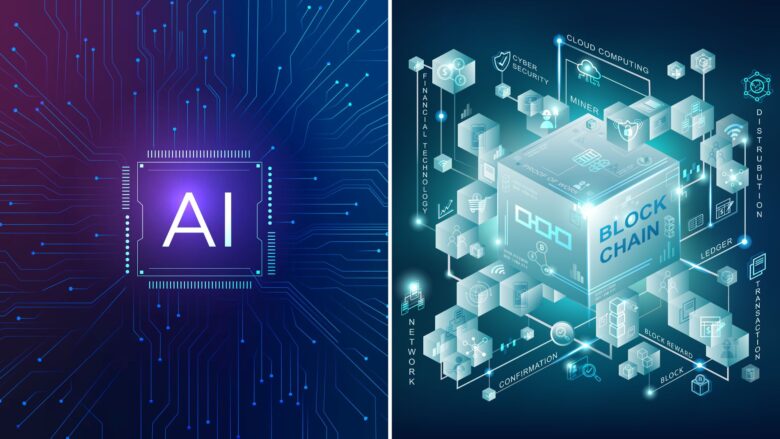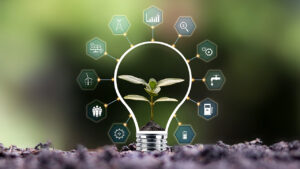Technology is changing at an incredible rate, altering economics, industries, and our daily life. In the midst of all the advancements in the last few times AI, artificial intelligence (AI) and the blockchain tech are the primary forces that are which are driving the transformation. They’re not only changing the way businesses function, but changing the way we interact with our digital world. In addition to these, a myriad of other technologies are set to expand the frontiers of innovation more. This blog will examine the growing popularity of AI and blockchain technology and other breakthrough technologies with a focus on their impact on our society, the issues they bring and the possibilities that the future will bring for these amazing technologies.
Artificial Intelligence (AI)
AI has swiftly transformed from a niche field of research to a technology that has applications in virtually every sector. In essence, AI is the process of developing computers that can perform tasks that normally require human expertise including solving problems, learning and making decisions. Machine learning, which is a part of AI takes this one step further by allowing systems to increase their efficiency with time, but without any explicit programming.
AI’s impact can be observed across a range of applications. From virtual assistants such as Siri as well as Alexa to more sophisticated applications in diagnostics for healthcare autonomous vehicles, prescriptive analytics. AI has become a part of our everyday lives. AI allows businesses to mine huge amounts of data in order to gain useful insights that help them make better choices. For instance, Amazon’s recommendation algorithms and Netflix’s personalised recommendations for content have been powered by AI which improves the user experience and increasing customer retention.
AI can also play a vital role in the advancement of medical research, increasing the efficiency of supply chains, as well as providing real-time fraud detection for financial services. As AI becomes more advanced and sophisticated, ethical concerns like privacy of data, bias and the automatization of jobs require careful consideration. However, the potential for AI to bring about positive change is evident and as technology advances it will increase in scope.
Blockchain Technology
Blockchain technology, initially developed to serve as the basis for cryptocurrencies such as Bitcoin is now a revolutionary instrument for securing and transparent transactions. Blockchain is an open ledger system which stores data in a decentralized, immutable way. This method guarantees that once data is stored on the blockchain system, it can’t be altered without the consent of the network.
Although it initially gained attention in the world of finance however, its uses go beyond digital currency. Blockchain is currently changing industries such as supply chain management and real estate, healthcare as well as governance. For instance food and beverage companies utilize blockchain technology to improve authenticity and traceability, allowing consumers to confirm the origin and quality of the items they purchase. In the same way the real estate sector has turned to blockchain technology for the safe and secure management of records related to property.
A further advantage of blockchain technology is the potential to decentralize and improve democratization. Through the elimination of intermediaries, blockchain technology lowers costs, boosts efficiency and builds trust among all users. Smart contracts, a derivative of blockchain technology, further increase the capabilities of blockchain by automatically executing agreements once certain conditions are fulfilled.
Despite its enormous potential Blockchain technology isn’t free of challenges. A high energy use as well as scalability issues and regulatory uncertainty pose significant obstacles to wider adoption. By overcoming these challenges, however will lead to an open, secure and fair digital ecosystem.
Other Emerging Technologies
Outside of AI or blockchains, a myriad of other technologies are also gaining momentum and creating excitement about their potential to revolutionize industries and improve the lives of people. Augmented Reality (AR) as well as VR (VR) for example transform the way we engage in education, entertainment and remote work. With immersive experiences in gaming to virtual tours of properties These technologies blur the boundaries between real and virtual worlds.
The Internet of Things (IoT) is another enlightening trend that connects everyday objects to the internet, allowing the exchange of data in real time. Wearables, smart homes devices for health and smart cities illustrate the ways in which IoT improves efficiency and ease of use while accelerating the development of urban and energy management.
Quantum computing is another subject that is receiving attention for its capacity to handle complicated calculations at a rate that is unimaginable. While still in its early stages quantum technology has the potential to revolutionize industries like cryptography, drug discovery and optimization. The advancements in 3D printing, bioengineering and renewable energy technology demonstrate the range of innovations which is shaping the future of our world.
Convergence and Synergies
What makes this period of technological advancement so thrilling is the convergence of these new technologies. Instead of working as a stand-alone entity, AI, blockchain, IoT and other technological advancements are increasingly collaborating to produce synergies that enhance their effects. For instance, AI algorithms can process the massive quantity that is generated through IoT devices, delivering real-time data that aids in making better decisions. Additionally, blockchain technology can increase its security as well as transparency in IoT networks, which can address issues with data breaches and unauthorised access.
This convergence also opens the way for completely new business strategies and solutions. Take the healthcare sector where wearable IoT devices with AI-powered diagnostics can safely store and share the patient’s data through blockchain networks. The combination of these technologies could transform the patient experience, simplify workflows, and promote collaboration between stakeholders.
Challenges and Considerations
Despite their tremendous potential, new technologies are not without their fair number of problems. A major issue is the increasing digital divide as access to cutting-edge technology remains unattainable in many areas around the globe. It is crucial to close this gap to ensure equal advantages and opportunities for all.
The ethical implications also are a big concern. Concerns about data privacy as well as algorithmic bias and the impact on society of automation need strict oversight and regulation. The speed at which technology advances advancements often surpasses the growth of legal and ethical frameworks, highlighting the necessity of proactive governance.
Cybersecurity is a different issue due to technology is interconnected, and technological advancements such as IoT and blockchain makes them more vulnerable to cyberattacks. Securing sensitive information and ensuring the security in digital platforms will become essential as these technologies continue to develop.
Future Outlook
The future of new technologies is both intriguing and complex. The latest developments in AI as well as blockchain technology and beyond are likely to bring significant improvements in areas that range between climate sciences to targeted medical treatment. The continuing convergence of technology blurs the boundaries between digital and physical worlds, opening up new opportunities for both individuals and businesses alike.
To realize the full possibilities of the technologies requires collaboration across sectors, disciplined governance and the commitment to ethical behavior. Through fostering inclusion and confronting issues head-on, we will be able to utilize these tools to create more sustainable, fair as well as prosperous and sustainable future.
FAQs
1. What’s the function of AI in new technologies?
AI serves as a facilitator for various technologies, increasing their capabilities via automated data analysis, intelligent data analysis as well as predictive models.
2. What is blockchain’s role in helping guarantee safety?
Blockchain utilizes encryption technology and decentralized networks in order to produce tamper-proof records of transactions, which ensure the transparency and security of transactions.
3. Which industries can benefit the most from new technologies?
Although all industries can benefit, some sectors like finance, healthcare supply chain, entertainment are undergoing the biggest changes.
4. Do emerging technologies take over human jobs?
The newest technologies may automate some jobs, but they also create new opportunities by accelerating innovation, boosting productivity, and spawning whole new industries.
5. What can companies do to be prepared for the next generation of technologies?
Companies can stay at the forefront of education by fostering an innovative environment and strategically implementing technology to enhance their operations and boost their competitiveness.




